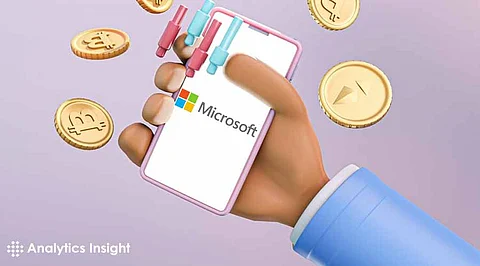

MicroStrategy co-founder Michael Saylor has proposed a comprehensive strategy for Bitcoin adoption to Microsoft's board of directors, asserting that it could significantly increase the company's stock value and enhance shareholder returns. Saylor claimed that by implementing Bitcoin treasury strategies, Microsoft could raise its stock price to $584 per share and create nearly $5 trillion in shareholder value by 2034.
As of December 2024, Google Finance reports that Microsoft shares are up 14% year-to-date, trading at $423.46. In a presentation to Microsoft's shareholders in December, Saylor explained that the company could convert its $200 billion in capital distributions into Bitcoin holdings. This conversion could potentially reduce its enterprise value at risk from 95% to 59% and increase annual returns from 10.4% to 15.8%.
Saylor characterized Bitcoin as a "universal, perpetual, and profitable merger partner," just like the acquisition of a high-growth company. He believes that Bitcoin provides unique advantages compared to traditional mergers and acquisitions; (M&A) transactions. Saylor asserted that Bitcoin offers an annualized return rate (ARR) of 62% for investors, compared to just 18% ARR from Microsoft, while also minimizing the risks and complexities typically associated with M&A.
He described Bitcoin as a consistently available acquisition target that can absorb capital while providing significantly better returns. According to Saylor, this strategy could serve as an attractive alternative for Microsoft compared to its current practices of paying dividends and executing stock buybacks. The concept appears well-suited to appeal to Microsoft's board of directors, who are familiar with mergers and acquisitions dynamics and might be interested in exploring innovative capital deployment techniques on this scale.
In his presentation, Saylor highlighted the absence of counterparty risks associated with Bitcoin. He pointed out that the treasuries of most companies depend on the performance, stability, or cooperation of other entities, which creates vulnerabilities that Bitcoin eliminates. Consequently, Saylor argued that this reduction in exposure allows Microsoft to preserve its value better.
He also stressed that Bitcoin is a "commodity, not a company," meaning its value does not rely on the performance of any specific entity. This characteristic aligns with broader corporate trends seeking uncorrelated assets to enhance risk management.
Saylor presented data illustrating Microsoft's current financial position, which includes a market value of $3 trillion, $27 billion in net cash, and an annual cash flow of $70 billion that is growing at a rate of 10%. Using the open-source simulation Bitcoin24, he demonstrated how Microsoft can establish a much larger and more resilient structure based on these fundamentals.
Microsoft had previously invited shareholders to vote on Bitcoin investments in October 2024. After this announcement, Saylor concluded his presentation with a strong call to action for adoption, urging Microsoft to embrace Bitcoin as a strategic move that would benefit not only its shareholders but also its employees, customers, and society as a whole.
“Do the right thing for your customers, employees, shareholders, the country, the world, and your legacy,” Saylor stated, emphasizing the potential for what could be one of the largest corporate efforts to adopt Bitcoin to date.
